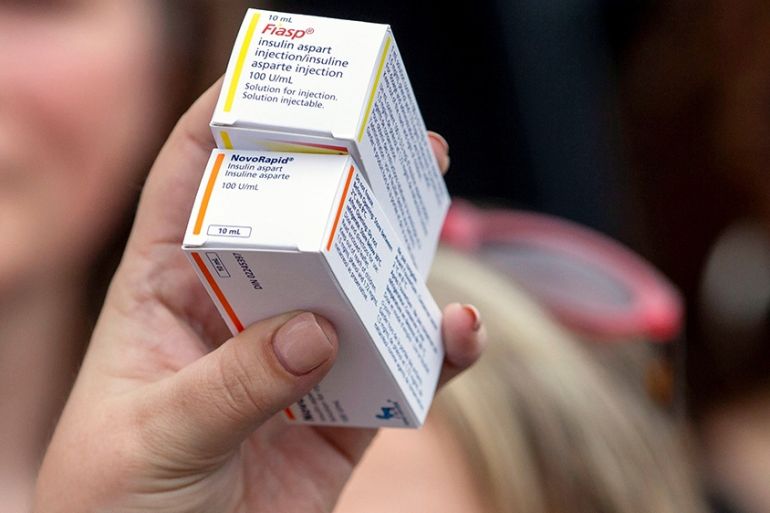Cheaper drugs: Trump wants US states to import Canadian medicine
Drug pricing is an election issue, and many politicians say they would support importing medicines to lower US prices.

The administration of United States President Donald Trump took the first step on Wednesday towards allowing the importation of medicines from Canada – an action Trump has advocated as a way to bring cheaper prescription drugs to Americans.
The United States Department of Health and Human Services (HHS) and the Food and Drug Administration (FDA) are proposing a rule that will allow them to authorise states and other groups to pursue pilot projects related to importing drugs from Canada.
Keep reading
list of 4 itemsSouth Africa’s Ramaphosa signs health bill weeks before election
Gaza lost much more than a hospital when it lost al-Shifa
With measles on the rise, rebuilding trust in vaccines is a must
The USDA said it would allow drugmakers to bring medicines sold more cheaply in other countries into the US market, potentially enabling manufacturers to sell these drugs below their contracted prices in the US.
The Canadian government said this week that it plans to soon publish a final version of new regulations aimed at cutting patented drug prices that are among the highest in the world. But two of the country’s most populous provinces – Ontario and Quebec – expressed concerns about this move, arguing that such regulatory changes could hurt investments in the life sciences.
Drug industry shares were lower slightly, with the NYSE Arca Pharmaceutical Index off 0.25 percent versus a broader flat market. Wall Street analysts said importation was far from being put into place – and was limited to certain drugs from Canada.
HHS Secretary Alex Azar said that he has had a prior discussion with Canada about importation – and that it would be up to US states, pharmacies and distributors to address any obstacles.
“There are hurdles, of course, but the hurdles now are known. They are being laid out, and they are surmountable,” he said during a call with reporters.
Canadian officials were not immediately available for comment. Reuters has previously reported that Canada opposes any US plans to buy Canadian prescription drugs if this threatens Canada’s drug supply or raises costs for its citizens.
Many drug-purchase agreements in Canada forbid the re-export of drugs to other countries, according to a Canadian government memo obtained by Reuters.
“Given the size of the US market and of large states such as Florida, which alone is two-thirds of the population of Canada, reliance on imports from Canada would have limited viability as a long-term solution to the high cost of drugs in the US,” Health Canada said in a statement on July 17.
Evercore ISI analysts Ross Muken and Michael Newshel said in a research note that any implementation is still far away given the technical steps of rulemaking and the fact that the proposals will face challenges. For instance, they noted, most Republican legislators in the US Congress oppose importation.
The first part of the proposal would allow states, wholesalers or pharmacists to submit plans for pilot projects for Canadian drugs if their raw materials are manufactured in the same plants as the US versions and if they are in line with the FDA’s approval. This proposal would exclude biologics, infused drugs, injected drugs, inhaled drugs for surgery and certain parenteral drugs.
The Trump administration has experienced several recent failures in its efforts to bring down drug prices. Its plans to make drugmakers disclose their prices in television ads had to be thrown out after it lost a legal battle with drugmakers, and it abandoned efforts to force pharmacy benefit managers to pass discounts on to Medicare recipients.
Drug pricing is an important election issue for Trump and also for Democrats, many of whom have said they would support importing medicines to lower US drug prices. Pharmaceutical companies, for their part, have opposed importing medicines.